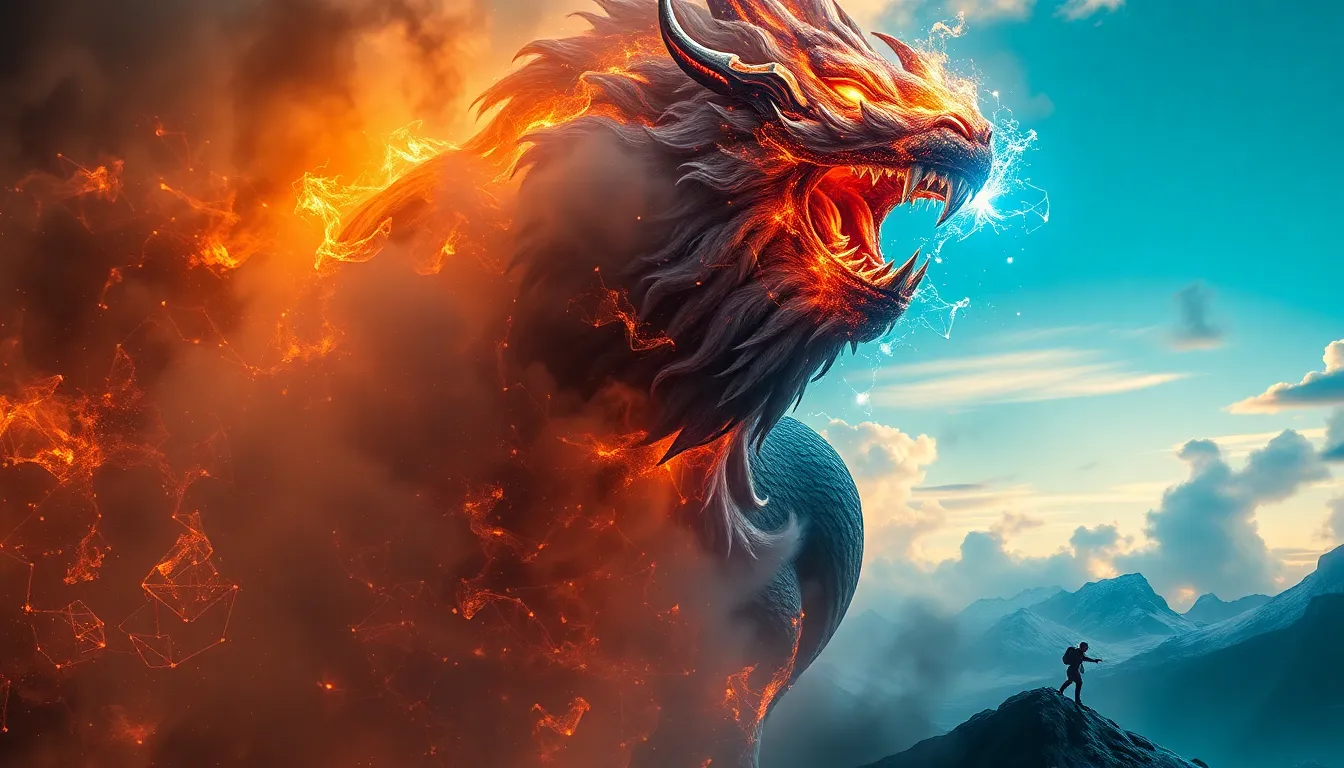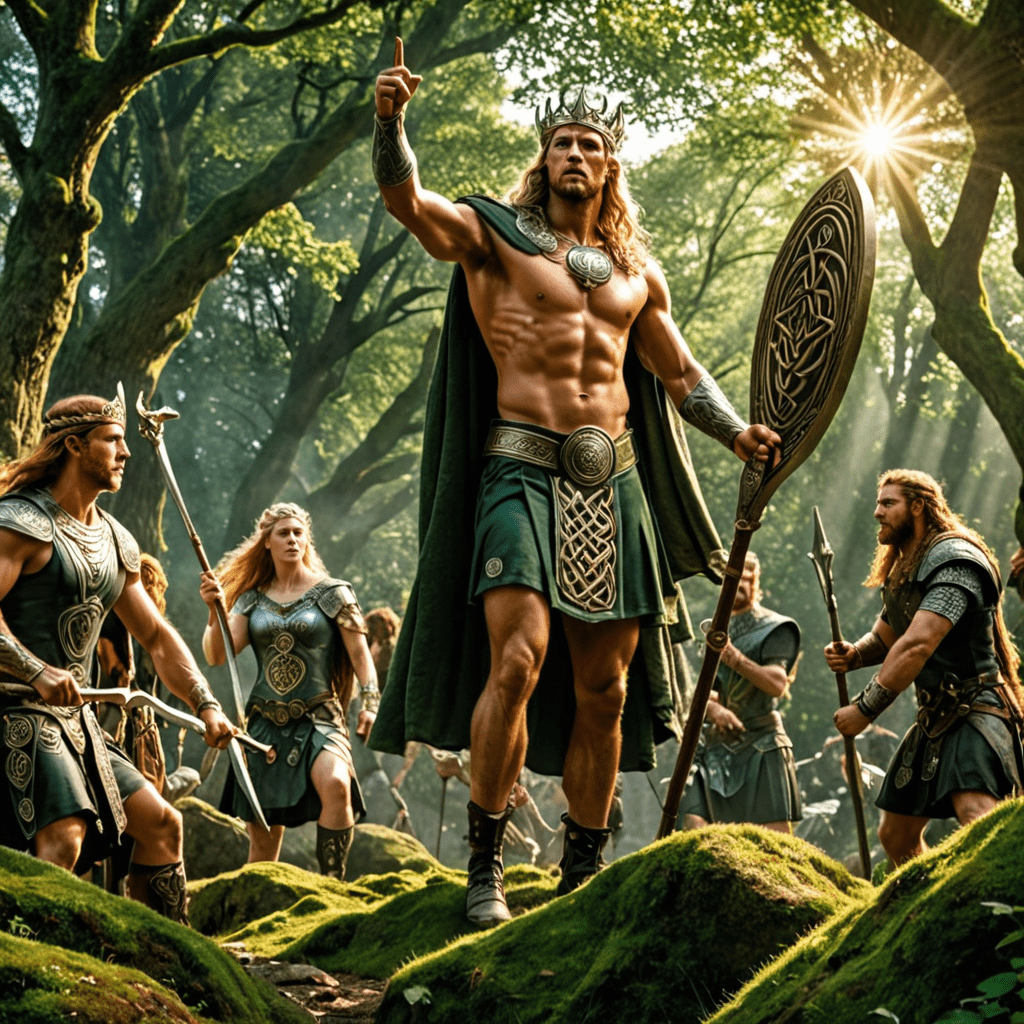The Faces of Change: Iconic Transformations in Mythology
Introduction: The Essence of Transformation in Mythology
Transformation is a central theme in mythology, encapsulating the essence of change that defines both individual and collective human experiences. Myths often depict characters undergoing profound changes, symbolizing growth, struggle, and the cyclical nature of existence. This theme resonates across cultures, reflecting the psychological need for renewal and adaptation.
In various cultural contexts, transformation signifies more than mere physical change; it embodies shifts in identity, status, and understanding of the self. The narratives of transformation serve as mirrors reflecting the complexities of human life, illustrating our struggles, triumphs, and the inevitable passage of time.
Mythical Transformations: A Cross-Cultural Perspective
Across the globe, myths featuring transformation share common motifs, illustrating humanity’s shared fascination with change. These narratives often involve:
- Physical metamorphosis (e.g., humans transforming into animals or gods).
- Spiritual evolution (e.g., the journey from ignorance to enlightenment).
- Social or relational shifts (e.g., the rise and fall of heroes).
From the shapeshifting deities of the Norse to the transformative journeys in Asian folklore, these stories highlight how cultures interpret change and the lessons derived from such transformations.
Greek Mythology: The Power of the Gods and Mortals
In Greek mythology, transformation is often depicted through the whims of gods who intervene in mortal lives. A notable example is the story of Apollo and Daphne, where Daphne is transformed into a laurel tree to escape Apollo’s advances, illustrating the tension between desire and autonomy.
Ovid’s “Metamorphoses” is a rich tapestry of such transformations, where characters undergo changes that reflect their emotional and psychological states. Each transformation carries implications for identity and fate, suggesting that change can be both a blessing and a curse.
Norse Mythology: Shape-Shifting and the Fluidity of Identity
Norse mythology is replete with shape-shifting figures, most notably Loki, the trickster god. Loki’s transformations illustrate the fluidity of identity and the unpredictable nature of existence. His ability to change form—from a fish to a mare—highlights the complexities of character and the ambiguity of moral boundaries.
Transformation in Norse cosmology is not merely physical; it encompasses the gods’ relationships and their roles within the cosmos. The fluidity of identity serves as a reminder of the ever-changing nature of life and the interconnectedness of all beings.
Asian Mythologies: The Symbolism of Change
Asian mythologies also explore transformation profoundly. In Hindu mythology, Vishnu’s avatars represent various forms of divine intervention in the world, each embodying different aspects of existence. These transformations signify the cyclical nature of life and the continuous opportunity for renewal.
In Chinese folklore, the butterfly serves as a powerful symbol of transformation and change. The metamorphosis of a caterpillar into a butterfly represents the journey of the soul and the potential for beauty and renewal, echoing the broader theme of transformation in personal and spiritual contexts.
African Mythologies: Ancestral Spirits and Transformational Journeys
African mythologies often emphasize the concept of transformation as a passage between realms. Many stories illustrate the transition from human to animal, revealing the interconnectedness of all living beings and the cyclical nature of life and death.
For example, myths about ancestral spirits often depict transformation as a way for the deceased to communicate with the living. These stories highlight the importance of honoring ancestors and understanding one’s place in the continuum of existence.
Native American Mythology: The Interconnectedness of Life and Change
In Native American cultures, transformation is deeply connected to nature and the environment. Tales like that of Coyote, who embodies both creator and trickster, showcase the transformational power of nature and the importance of adaptability.
These narratives often emphasize the interconnectedness of all life forms, illustrating how changes within the natural world can reflect and influence human experiences.
Modern Interpretations: Transformations in Contemporary Mythology
Modern storytelling continues to draw inspiration from traditional myths of transformation. Literature, film, and pop culture often feature characters who undergo significant changes, reflecting the timeless nature of these narratives.
Examples include:
- The metamorphosis of characters in fantasy literature, such as in J.K. Rowling’s “Harry Potter”.
- Films that explore personal transformation, such as “The Shape of Water” and “The Lion King”.
- Superheroes whose powers often involve transformation, like Spider-Man and the Hulk.
These modern interpretations highlight the enduring relevance of transformation myths in exploring themes of identity, growth, and change.
Psychological Perspectives: Mythological Transformations and Personal Growth
Psychologically, transformation serves as a powerful metaphor for personal growth and development. Many psychological theories emphasize the journey of self-discovery and the importance of navigating change in life.
Insights from psychology suggest that:
- Metaphorical transformations can represent internal conflicts and resolutions.
- Stories of metamorphosis can inspire individuals to embrace change as a natural part of life.
- Understanding myths of transformation can aid in personal narrative construction and identity formation.
These perspectives reinforce the idea that transformation is not only a mythological theme but also a fundamental aspect of the human experience.
Conclusion: The Enduring Legacy of Transformation in Mythology
Transformation remains a vital theme in mythology, offering insights into the human experience and our relationship with change. The narratives of transformation across cultures reflect our struggles, aspirations, and the quest for identity.
In contemporary society, these myths continue to resonate, reminding us of the importance of adaptability and the beauty of metamorphosis. As we navigate our own lives, the stories of transformation inspire us to embrace change, understanding that it is through transformation that we grow and evolve.
![]()


